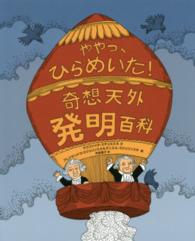Full Description
In Italy during the late cinquecento, printed music could be found not only in the homes of the wealthy or the music professional, but also in lay homes, courts, and academies. No longer confined to the salons of the elite, music took on the role of social play and recreation. Paul Schleuse examines these new musical forms through a study of the music books of Italian priest, poet, and composer, Orazio Vecchi. Composed for minor patrons and the wider music-buying public, Vecchi's madrigals took as their subjects game-playing, drinking, hunting, battles, and the life of the street. Schleuse looks at how music and game-playing allowed singers and performers to play the roles of exemplary pastoral characters and also comic, foreign, and "rustic" others in ways that defined and ultimately reinforced social norms of the times. His findings reposition Orazio Vecchi as one of the most innovative composers of the late 16th century.
Contents
Introduction
1. The Four-Voice Canzonetta as (and in) Recreational Polyphony
2. Intertextuality in Vecchi's Canzonettas and Madrigals, 1583-1590
3. Forest and Feast: The Music Book as Metaphor
4. L'Amfiparnaso: Picturing Theatre & The Problem of the "Madrigal Comedy"
5. Competition and Conversation: Games as Music
6. Representation and Identity in Musical Performance
Appendix: Vecchi, L'hore di recreatione from Madrigali a sei (1583).
Notes
Works Cited
Index








